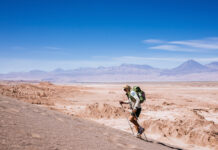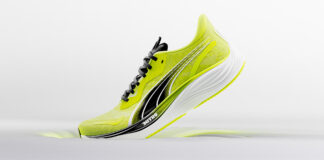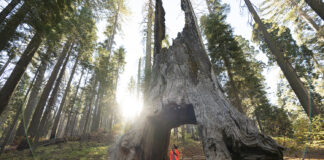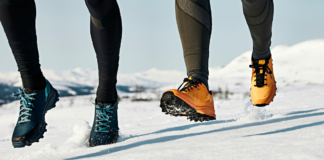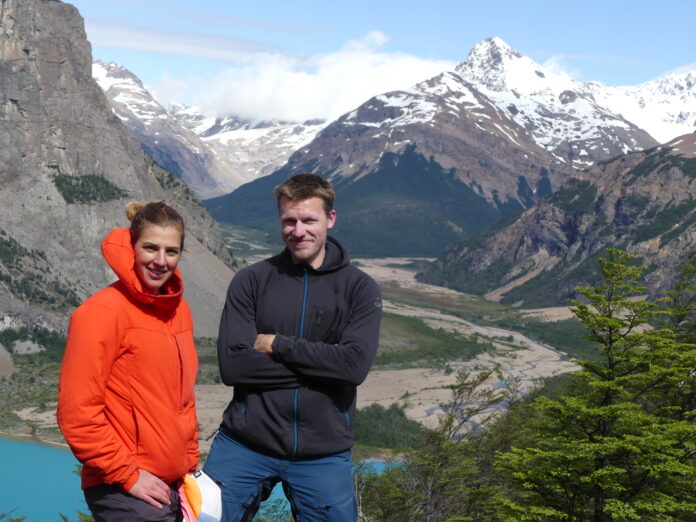
The idea came to Leanna Carriere during the second Covid lockdown in 2021. The Edmonton-based triathlete and marathoner had been training for the Penticton Ironman when it was cancelled two weeks before the event. Frustrated that all her training was going to waste, she saw on social media a cycling world record attempt on the Pan-American Highway, a journey from Alaska to Patagonia.
“I looked at the highway and thought, ‘I could do this.’ I was trained and fit enough, and I didn’t want to go through another lockdown. I could just take my bike and go,” Carriere says. Sharing the idea with fellow triathlete Dr. Timm Döbert, they felt a journey as mammoth as cycling 30,000 kilometres should have a purpose, and so the Wings of Survival idea was born.
Carriere and the German-born Döbert—an ecologist, explorer and avid wildlife photographer—will cycle, raft and trek along the Pacific Americas through 15 countries, following the migratory bird flyway, to raise awareness of the biodiversity crisis with the hope of empowering people to re-connect with nature. The expedition is slated to begin by July 1.
We will need to cover 150 kilometres a day, which is eight to 10 hours of physical activity.
As they will be following specific migratory birds—some of which will be tagged with small GPS devices—they need to complete the journey in nine months.
“We will need to cover 150 kilometres a day, which is eight to 10 hours of physical activity,” says Carriere. That goal is not for the faint-hearted, but both have strong fitness backgrounds.
Carriere is an accomplished athlete, having competed for eight years as a pole vaulter and then a decathlete before switching gears to endurance events. In 2022 she ran the Mount Everest Marathon, competed in the Penticton Ironman, and with Döbert, took part
in the gruelling 2022 Patagonman Xtreme Triathlon.
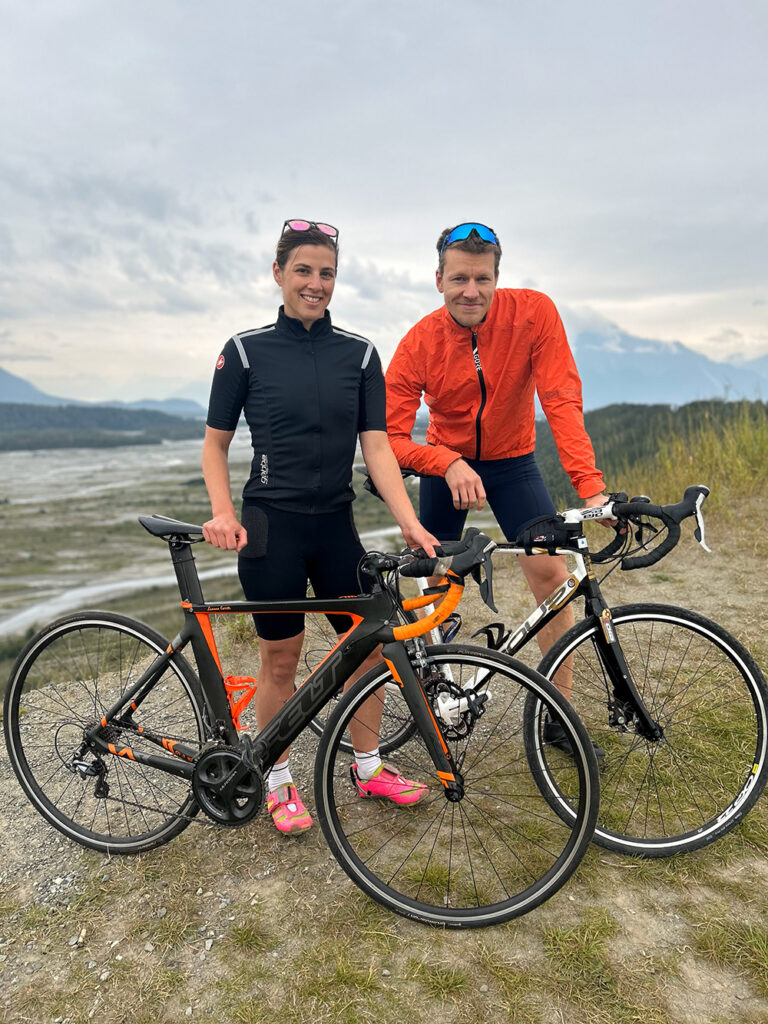
Döbert is now based in Colombia and was a soccer player and a successful rower before he took up triathlons and Ironman events. A passionate environmentalist, he doesn’t own a car, preferring to commute by bicycle.
How does one prep for a 30,000-kilometre journey through 12 different biomes? The biggest challenge, says Carriere, is to stay healthy. “The biggest thing is not to overtrain the muscles as we will gain fitness on the bike during the trip. We need to build our Vo2 aerobic base and get really strong.”
But she admits it’s mental strength that’s most important. “I purposely put myself in an exhausted state from a workout then go and cycle on the bike trainer or do some high reps, so I get into a hurting place where I mentally have to work through that and then come back the next day.”
Nutrition is also an important consideration. The pair are working with sport scientists at the University of Alberta and sports physiologists at the University of Calgary who are monitoring their training through testing their Vo2, heart rate and stressors. “This involves the body and mind, but nutrition is that third piece that connects it together,” says Carriere. “If you aren’t getting enough sugar or carbohydrates when biking, there is a risk of bonking, but as athletes, we can also start to get negative thoughts and get down on ourselves. So, we need
to address this before it happens.”
Carriere and Döbert are both vegan, which adds another component to the mix. They have been reaching out to Canadian companies for donations of care packages and food so they can be properly fuelled.
While they can do a lot of preparation ahead of time, there are always unknowns with an expedition of this magnitude. The weather and climate changes could be the anomaly. While they will have a support vehicle to provide an element of safety and to store equipment—they may need several types of bike tires depending on the terrain—they will have to endure the elements of nature themselves.
“The tropics will be a challenge with the combination of heat and humidity,” Döbert says. “We will be climbing the Andes into the wetlands where certain birds go. Even though it will be a high altitude, we don’t expect it will be too cold.”
Their actual route isn’t finalized yet but using the Pan-American Highway as a reference, they will travel as west as possible following the flyway. “We will have a combination of road, trail and gravel, many in remote regions,” adds Döbert.
They are also planning community events along the way to raise awareness about their expedition. “There is a lot of negativity in the world, and at the community events we are showcasing a great initiative and project to those that don’t usually have that outreach. It is also empowering getting people engaged in citizen science in the bird space and showing how people can contribute. We want the journey to have a very positive vibe,” says Döbert.
The expedition will be filmed by Moving Artistry Productions. For information on supporting the expedition, visit www.wingsofsurvival.com.
Photography by Moving Artistry Productions – Alice Carr
You may also like: Athletes With IMPACT

Read This Story in Our 2024 Inspiration Issue
Read about our 2024 Canada’s Top Fitness Trainers – our top 30 from across Canada! How to Hire a Personal Trainer, The Dangers of Overtraining, Return to Running After Illness, Easy Vegan Garlic Noodles and more!


